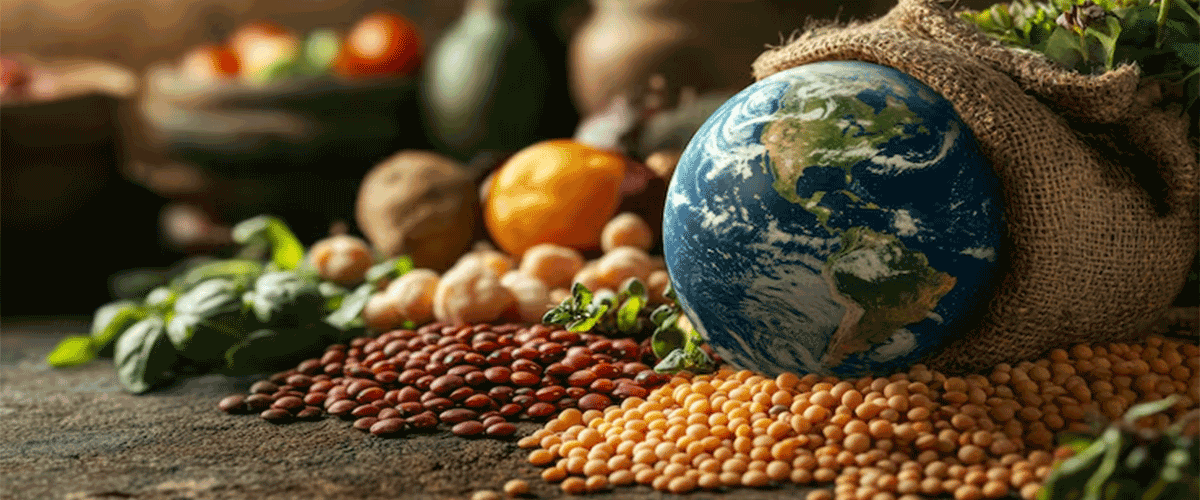(An Autonomous Body Recognized by Ministry of Commerce & Industry, Government of India)
Competency based placement focussed Education | Training | Research | Consultancy

Climate Change May Undermine Crop Nutrition, New Study Warns
Preliminary research from Liverpool John Moores University suggests that rising CO₂ levels and higher temperatures—both driven by climate change—may reduce the nutritional quality of food crops. While elevated CO₂ can boost crop growth, it often results in lower levels of essential nutrients like calcium, proteins, and antioxidants. PhD researcher notes that this nutrient dilution may increase health risks, such as obesity and weakened immunity, especially in low-income regions. The study focuses on leafy vegetables like kale, rocket, and spinach, grown under simulated future UK climate conditions. Using high-performance analytical tools, researchers found complex interactions between CO₂ and heat, showing varied responses across crops. These findings highlight the urgent need to consider nutritional quality—not just crop yield—when planning for climate-resilient food systems. “Food must be more than abundant—it must support long-term health and resilience,”, emphasizing a more holistic approach to climate, agriculture, and human wellbeing.
16-07-2025
📰 Recent News
- High-Fat Diets May Rewire Liver Cells, Raising Cancer Risk
- Time-Restricted Eating Alone Shows No Metabolic Benefit, Study Finds
- Maternal Emulsifier Intake May Alter Offspring Gut Health, Mouse Study Finds
- Broader Obesity Criteria Reveal Hidden Health Risks in US Adults
- YumYum Enters High-Protein Snacking Space with SNACKiT
- Winter Consumption Pushes Egg Prices Sharply Higher
- Human Rights Panel Flags Sale of Substandard Milk and Paneer in Chandigarh
- Ancient Khapli Wheat Finds New Favour Among Urban Health Seekers
- Global Study Reveals the Most Effective Foods for Hangover Recovery
- Eating vitamin C-rich foods can significantly improve skin health

